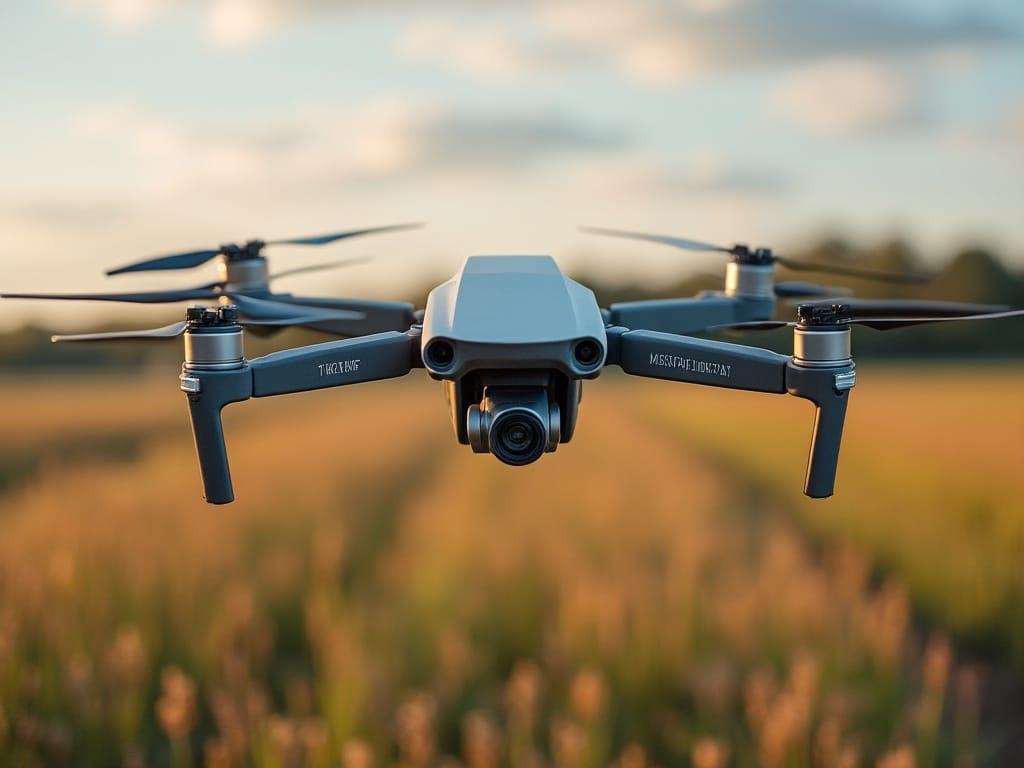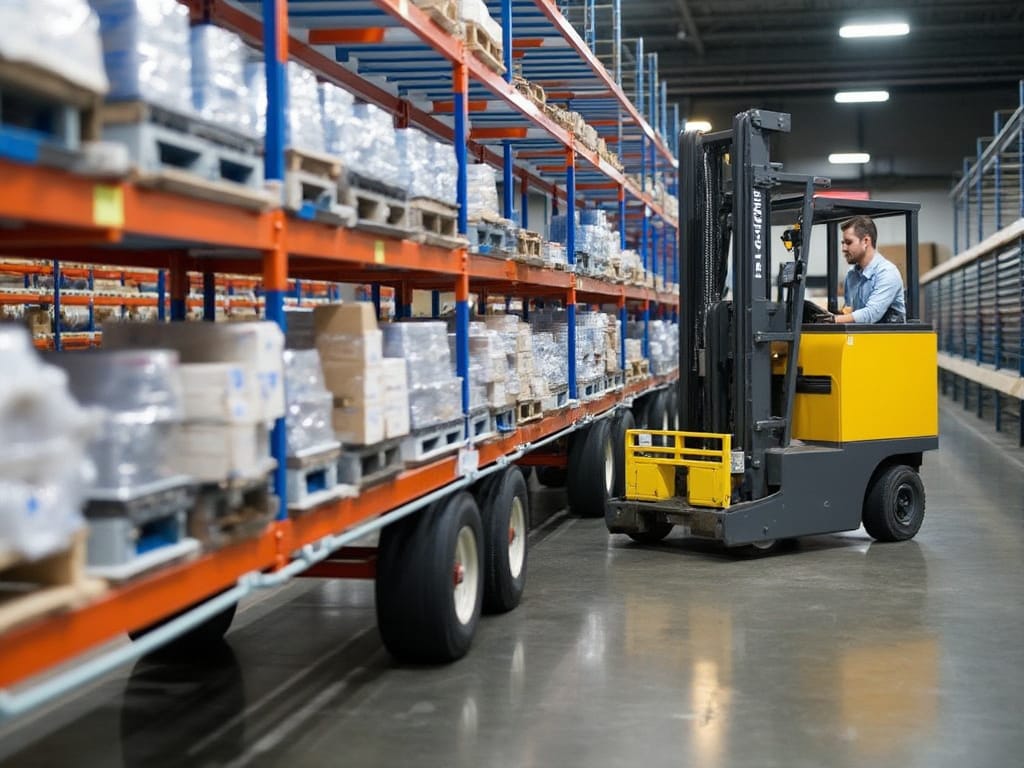
California’s agricultural landscape is a cornerstone of the state’s economy, producing a significant portion of the nation’s fruits, vegetables, and nuts. However, with increasing climate variability and water scarcity, farmers are under immense pressure to optimize their irrigation practices. Enter drones—a transformative technology that, when integrated with Enterprise Resource Planning (ERP) systems, is revolutionizing irrigation in California. This article explores how drones are enhancing irrigation efficiency, promoting sustainable farming, and working in tandem with ERP solutions to create a more resilient agricultural landscape.
California’s diverse climate presents unique challenges for farmers. Traditional irrigation methods, while effective to an extent, often lead to overuse of water resources, uneven distribution, and inefficiencies that can compromise crop health and yield. Prolonged droughts and unpredictable rainfall exacerbate these issues, making it imperative for farmers to adopt more precise and sustainable irrigation techniques.
Advancements in agricultural technology have paved the way for innovative solutions to these irrigation challenges. Agriculture erp software plays a crucial role in managing farm operations, while drones offer precise data collection and monitoring capabilities that enhance irrigation efficiency. By leveraging these technologies, farmers can make informed decisions that optimize water usage, reduce waste, and improve crop outcomes.
Drones equipped with high-resolution cameras and sensors can create detailed maps of farmland, providing farmers with critical insights into soil moisture levels, crop health, and topographical variations. This precision mapping allows for targeted irrigation, ensuring that each part of the field receives the appropriate amount of water based on its specific needs.
For instance, farm erp software can integrate drone-collected data to provide a comprehensive view of farm conditions, enabling precise water distribution and enhancing overall irrigation strategies.
One of the most significant advantages of using drones in agriculture is their ability to perform real-time monitoring. Drones can fly over fields at scheduled intervals, capturing up-to-date information on crop conditions and environmental factors. This real-time data allows farmers to adjust irrigation schedules dynamically, responding promptly to changes in weather patterns or crop needs.
By incorporating erp implementation in agriculture systems, farmers can automate these adjustments, ensuring that irrigation is optimized without the need for constant manual intervention. This integration not only saves time but also enhances the accuracy and effectiveness of irrigation practices.
Efficient resource management is essential for sustainable farming. Drones help optimize water usage by identifying areas that require more or less irrigation, thereby preventing overwatering and conserving water resources. This precision reduces the overall water footprint of farming operations, aligning with California’s stringent water conservation regulations.
Moreover, agri erp systems can analyze drone data to forecast water needs, manage supply chains, and allocate resources more effectively, ensuring that water is used judiciously across all farming activities.
Integrating drone technology with agritech erp software enhances data management capabilities, providing farmers with a centralized platform to store, analyze, and interpret vast amounts of data. This integration enables seamless data flow between different aspects of farm management, from irrigation to inventory control, facilitating more informed decision-making.
ERP for agtech systems streamline farm operations by automating routine tasks and improving coordination across various departments. When combined with drone technology, ERP systems can provide a holistic view of farm activities, ensuring that irrigation practices are aligned with overall farm management goals.
For example, farm erp software south africa can integrate irrigation data from drones with financial and inventory data, allowing farmers to optimize their operations for both efficiency and profitability.
Effective financial management is crucial for the sustainability of agricultural operations. ERP systems offer comprehensive financial planning tools that help farmers budget for irrigation expenses, track costs, and manage revenues. By analyzing data from drones, ERP systems can provide insights into the cost-effectiveness of different irrigation strategies, enabling farmers to allocate resources more efficiently.
Agro based erp software solutions can forecast water usage and related costs, helping farmers plan their finances more accurately and ensure that they are investing in the most effective irrigation practices.
Consider the case of a California vineyard that implemented agriculture erp systems alongside drone technology. By using drones to monitor soil moisture and crop health, the vineyard was able to adjust its irrigation practices in real-time, ensuring that each vine received the optimal amount of water. This precision not only improved grape quality but also reduced water usage by 20%, demonstrating the effectiveness of integrating ERP and drone technology.
Another example is a rice farm in the Pacific Northwest's agriculture hub, where drones were used to map fields and monitor crop conditions. The data collected by drones was fed into an agritech erp software, which streamlined supply chain management by automating inventory tracking and optimizing distribution routes. This integration reduced post-harvest losses and ensured timely delivery of rice to markets, enhancing the farm’s overall efficiency and profitability.
A third example involves a citrus grove in Florida, where organic farm management software was used in conjunction with drone technology to monitor irrigation needs and optimize water usage. By analyzing drone data, the ERP system enabled precise irrigation scheduling, conserving water and maintaining soil health. This sustainable approach not only preserved water resources but also improved crop yields and quality.
To maximize the benefits of ERP and drone integration, California farmers should explore various internal and external resources. Implementing agriculture erp solutions can provide tailored solutions that meet the unique needs of different farming operations. Additionally, partnering with technology providers like Agri Flow ensures access to the latest innovations and support services.
Furthermore, staying informed about global trends and best practices through external sources such as Food and Agriculture Organization (FAO) - Climate-Smart Agriculture and World Bank - Digital Agriculture and Climate Resilience can provide valuable insights and strategies for continuous improvement.
ERP systems foster collaboration among farmers, agronomists, and agricultural extension services. This connectivity promotes the sharing of best practices, access to expert advice, and collective problem-solving. By creating a collaborative ecosystem, ERP systems enhance the overall capacity of the farming community to respond to climate challenges.
Through ERP platforms, farmers can share their experiences and strategies for enhancing biodiversity and adapting to climate change. This collective knowledge base helps disseminate effective practices across the farming community, promoting widespread sustainability.
ERP systems often include modules that connect farmers with agricultural experts and extension services. This access to expertise ensures that farmers receive timely guidance and support, enabling them to implement sustainable practices effectively.
While the benefits of integrating drones with ERP systems are substantial, farmers may encounter several challenges during implementation:
The initial investment required for drone technology and ERP systems can be a barrier for many farmers. However, the long-term benefits, such as increased efficiency and cost savings, often justify the upfront expenses. Additionally, financing options and government subsidies can help mitigate these costs.
Effective use of drones and ERP systems requires technical expertise, which may be lacking in some farming communities. Providing training and support is essential to ensure that farmers can utilize these technologies effectively. Programs offering training and support for ERP in agriculture can bridge this gap, empowering farmers to harness the full potential of their investments.
Managing sensitive farm data necessitates robust data privacy and security measures. ERP providers must ensure that their systems are secure and that farmers' data is protected against breaches. Implementing strong encryption protocols and regular security audits can help safeguard farm data.
The future of agriculture lies in the seamless integration of advanced technologies like drones and ERP systems. As climate change continues to pose challenges, these technologies will play an increasingly important role in promoting sustainable and resilient farming practices.
Integrating agriculture erp software with artificial intelligence (AI) and machine learning (ML) can provide even more sophisticated data analysis and predictive capabilities. These technologies can enhance crop forecasting, optimize resource allocation, and automate routine tasks, making farming operations more efficient and resilient.
While irrigation is critical for crops like grapes and citrus, drone and ERP integration can be adapted to support a wide range of crops across different regions of California. This flexibility ensures that the benefits of these technologies can be extended to various agricultural contexts, promoting widespread sustainability and productivity.
With the increasing penetration of mobile technology, ERP systems can be optimized for mobile use, providing farmers with access to critical data and management tools on-the-go. This accessibility ensures that farmers can make timely decisions, even when they are away from their fields.
Drones and ERP systems are at the forefront of a technological revolution in agriculture, particularly in regions like California where water management is paramount. By providing comprehensive management tools, promoting sustainable practices, and integrating with other advanced technologies, these solutions are helping farmers navigate the complexities of modern agriculture. As the agricultural landscape continues to evolve, the synergy between drones and ERP systems will remain a vital component in driving the future of sustainable and resilient farming.
Exploring more about agriculture erp solutions and agriculture erp market can provide deeper insights into how these systems are revolutionizing agricultural practices globally. Additionally, learning from enhancing cocoa production in Ghana with agricultural ERP offers valuable perspectives on the broader applications of ERP in promoting sustainable agriculture.
California farmers are not alone in their journey towards digital transformation. By connecting with global agri-business communities and sharing best practices, farmers can further enhance their operations. Engaging with platforms like Agri Flow and participating in international forums can provide opportunities for collaboration and innovation, ensuring that California remains a leader in climate-smart agriculture.
The integration of drones with agriculture erp systems highlights the multifaceted approach needed to combat climate change. By leveraging these tools, California farmers can build resilience, enhance sustainability, and secure their agricultural future against the unpredictable challenges posed by climate change.
